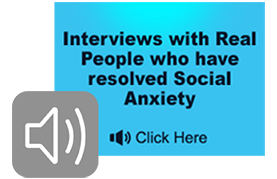Three Crucial Points for the Treatment of Adult Selective Mutism
An estimated 1 in 700 children have selective mutism (speaking phobia), but adult numbers are unknown, and treatment options remain vague. But psychotherapist and author Jonathan Berent, LCSW, has identified three crucial points in the treatment of adult selective mutism.
While selective mutism is a manifestation of social phobia it is also a complex variation of obsessive compulsive disorder. Adults affected with selective mutism seldom seek help, limiting estimates of those affected. But given the pervasiveness of public speaking anxiety, a more widely reported related diagnostic category of which selective mutism is a subset, millions of people may be affected.
Berent, a pioneer in the treatment of social anxiety, bases his method on nearly 40 years treating hundreds of adults, adolescents, and children with selective mutism, which may be the most clinical experience of any therapist. He identifies three crucial points therapists should incorporate into treatment for adults with selective mutism:
- Adult selective mutism occurs at different functioning levels. Therefore, cookie cutter behavioral approaches will not work. Berent offers the following case studies to illustrate this point:
Alice, age 42, was a human resources consultant who never said anything, for approximately a year, during her weekly staff meeting where approximately 20 people were seated around a table. She contacted me for treatment with her public speaking anxiety. Her belief that “she never had anything to say” was the self-censoring component of selective mutism. Alice was high functioning.
Jade, age 22, left visual arts school due to her selective mutism and social anxiety. When I met her, she stayed in her room most of the time. She stayed up most of the night and slept during the day. She did not say more than a few words per week to her mother, with whom she lived. Her waking life was spent online. That’s substantially over 100 hours per week. Her only social contact was online. Jade was low functioning.
Sally, age 21, had been on medicine for selective mutism for two years before I met her. She had no social life. She did not work and was totally dependent on her parents. She would talk minimally to her mother and not at all to her father. She was extremely depressed. Sally’s primitive baseline of functioning with medicine made her very low functioning.
Alan, age 17, was a straight A student. He would occasionally answer a question in class. He would never raise his hand in class, initiate social communication or interaction. He had no friends during the time in his life where he was applying to colleges. He was extremely dependent on parents. His positive attitude toward treatment, which is rare for an individual with dependent personality and his high potential for emotional intelligence, put him at the moderate functioning level.
- Low and moderate functioning individuals with selective mutism will not initiate treatment. If they are to be helped the therapist needs to negotiate the avoidance-dependence pathology by first enlisting and training enablers in the healing process. This is because individuals who are low functioning are too content with their “alternate universe.”
The alternate universe usually includes a variation of online or other technology pursuits. I have worked with countless adults whose only motivation is their online or technology life. - Teaching emotional agility is an integral component of effective treatment. This is the capability of identifying emotions as well as thoughts, which is a daunting task for the sufferer. This is because the selectively mute adult has learned emotional detachment as a defense mechanism. While behavioral strategies are important, they often become too mechanical and their efficacy often reaches the point of diminishing returns. The following as an example of emotional agility with an 8-year-old.
Click here to listen to the interview.
Berent says he believes that without incorporating these points into a treatment plan, mental health professionals often fail to help the selective mutism sufferer to truly resolve the issues underlying their disorder.
A free clinical library with essential and rare interviews with individuals and families, who have achieved life changing results with the Berent Method is available.




